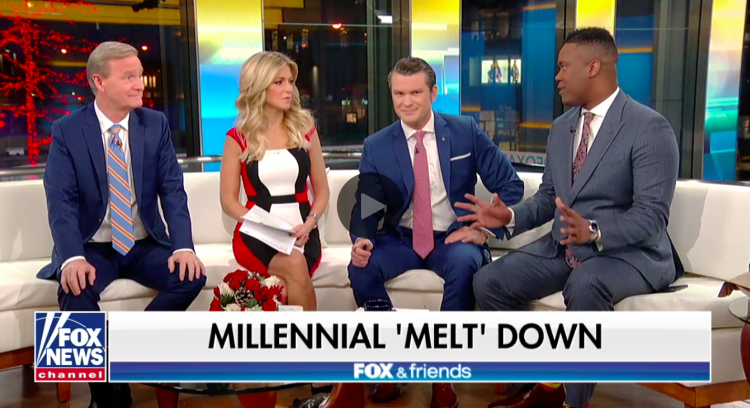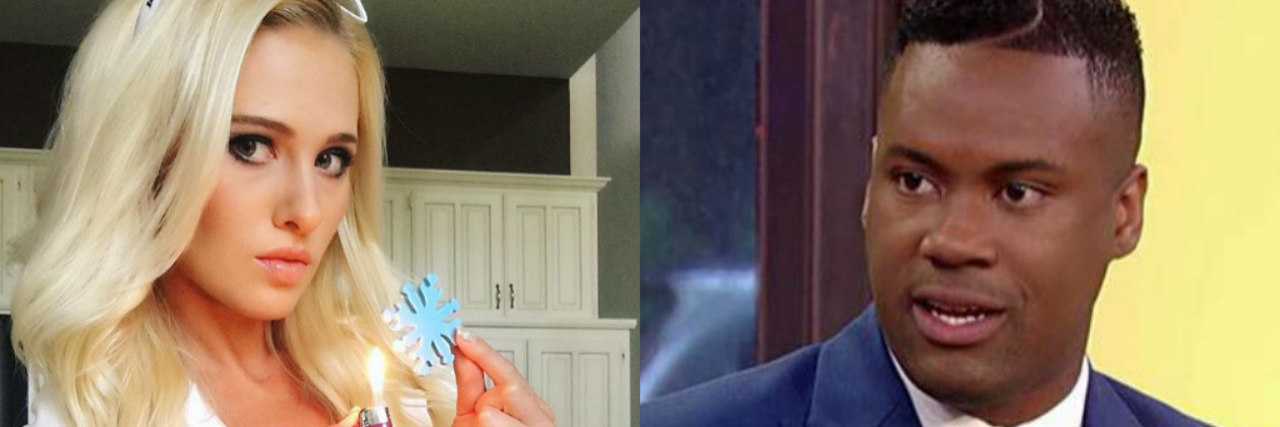What Media Coverage of the 'Millennial Snowflake' Study Got Wrong About Mental Health
Sometimes the news isn’t as straightforward as it’s made to seem. Juliette Virzi, The Mighty’s Associate Mental Health Editor, explains what to keep in mind if you see this topic or similar stories in your newsfeed. This is The Mighty Takeaway.
Millennials are in the news again — and you guessed it, it’s because “the young people” have taken issue with consistently and unfairly being generalized as “snowflakes.” Shocking, I know.
In a well-being study conducted by the British insurance company Aviva, it was found that being called “snowflakes” could negatively impact the mental health of young adults. “Our findings suggest that young adults are more likely to be experiencing mental health problems,” Dr. Doug Wright, the medical director of Aviva UK Health explained, “so using a phrase which criticizes this age group could add to this issue. Any term used disparagingly to a segment of the population is inherently negative.
“Snowflake,” the label infamously adopted by popular right-wing commentators like Tomi Lahren, is a slur implying (liberal) millennials are more easily offended, more emotionally vulnerable and less resilient than older generations. The term likely originated from Chuck Palahniuk’s novel “Fight Club” that inspired the film of the same name, with a line in the book saying, “You are not special. You are not a beautiful and unique snowflake.”
Unsurprisingly, coverage of this study has been sensationalized by conservative media news organizations. “Doesn’t this prove that they are snowflakes?” “Fox and Friends” host Ainsley Earhardt said on Friday in a segment discussing the study. TheBlaze’s Lawrence Jones also chimed in, saying he wasn’t surprised millennials were claiming the term negatively affected their mental health. “We’re going to create a generation of wussies, I’m sorry,” he said.

Tomi Lahren tweeted the Breitbart News coverage, with the status, “It’s melting season.” The story affixed the all caps headline, “Young People Say Calling Them a ‘Snowflake’ Damages Their Mental Health” with a photo of a red-faced woman crying hysterically, hand contorted in pain, appearing to sob in the general direction of the sky (pictured below).
It’s melting season ???????? pic.twitter.com/KrpA8jOT3m
— Tomi Lahren (@TomiLahren) December 6, 2017
Though unsurprising, this kind of response is still disappointing to see, and is more damaging to millennials in the mental health community than we might realize. But before you resort to calling me the snowflakiest ice princess of them all, hear me out.
The main issue isn’t the circular argument of, “You are offended we called you a snowflake, therefore you are a snowflake” — though that is certainly a frustrating outcome of media coverage like this. The real issue here is the fact that these commentators believe citing “mental health” is automatic grounds for assigning someone “snowflake” status. Because if you dare to talk about mental health, you must be too “emotional” and “sensitive” to deal with the realities of life.
This kind of thinking is not only flawed, it’s also damaging. Living with mental health struggles isn’t a political thing just “liberal millennials” experience. The reality is people who have mental health difficulties come from all over the political spectrum — and all need the space and opportunity to communicate what they are going through.
Because contrary to popular belief, when millennials say they are struggling with their mental health, they don’t mean their favorite cafe ran out of avocado toast. Having an emotional response to demeaning and attacking language isn’t being a “snowflake,” it’s being human.
Equating the mental health struggles of millennials with being a “snowflake” or “wuss” is unfair and can keep people from getting the help they need. When we see headlines that bear the phrase “mental health” in conjunction with lead photos clearly exaggerating and mocking emotional responses, it’s not funny — it’s stigmatizing.
It’s unrealistic — and dangerous — to expect people to be “fine” all the time. When we call specific groups derogatory names and slurs for having emotional responses or experiencing mental health struggles, we are both dismissing their experiences and discouraging them to ever open up about how they are really doing. It’s this kind of stigma that could lead people to suicide instead of reaching out for help.
We need to create a culture where it’s OK to talk about mental health, without fear of being called out for “being a snowflake.” We need to stop playing the comparison game, asserting that “those young people” don’t know what “hard” really means. Sure, my “hard” may be different than yours, but it doesn’t make it any less valid or real.
Let’s stop shaming millennials for speaking up about their mental health needs and start supporting them instead.
If you or someone you know needs help, visit our suicide prevention resources page.
If you need support right now, call the National Suicide Prevention Lifeline at 1-800-273-8255 or text “START” to 741-741.
Lead image via Tomi Lahren and Lawrence Thomas Facebook pages

